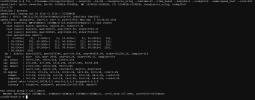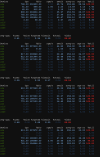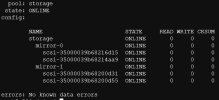No, you mean write back (unsafe). I am talking about the other write back option which basically lets the underlying OS decide whether a write should be synced or unsynced. Unless you cannot trust the OS (particularly old OS or Windows, XP/2003 and prior) it should be safe to set it to write back.
Please read the documentation on the entire stack why things work the way they do.
ZFS and Proxmox is set up to do things very safe/conservative out of the box, so if you force a sync after every write (the default) you will get what you ask but you won’t see for example write aggregations which on a 12-wide RAIDZ will limit your throughout to the speed of a single disk (every disk has to respond before the next write). As others have pointed, RAIDZ 12-wide is not recommended for that use case, I would recommend 2x 6-disk RAIDZ2 for data safety and maximum yield or 2-way mirror w/ PBS (or 3-way if you need high availability).
Please read the documentation on the entire stack why things work the way they do.
ZFS and Proxmox is set up to do things very safe/conservative out of the box, so if you force a sync after every write (the default) you will get what you ask but you won’t see for example write aggregations which on a 12-wide RAIDZ will limit your throughout to the speed of a single disk (every disk has to respond before the next write). As others have pointed, RAIDZ 12-wide is not recommended for that use case, I would recommend 2x 6-disk RAIDZ2 for data safety and maximum yield or 2-way mirror w/ PBS (or 3-way if you need high availability).




